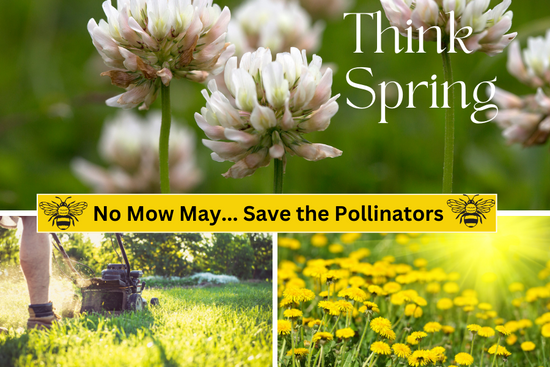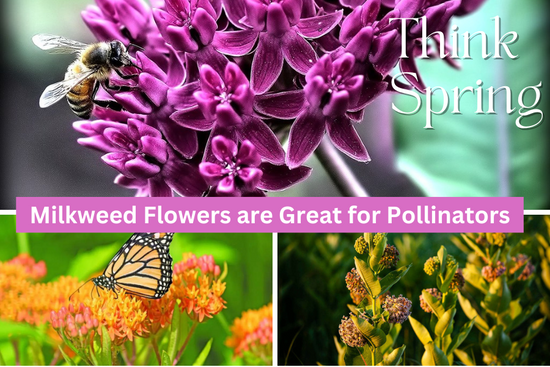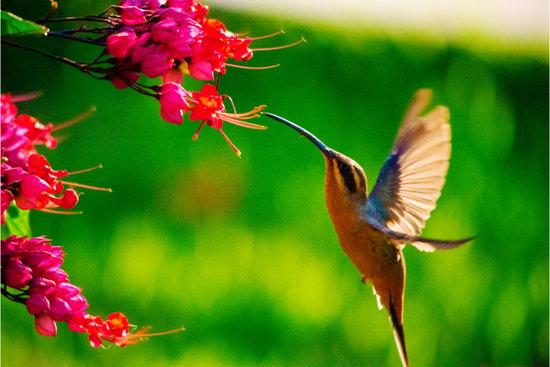

Table of contents
The Buzz on Dandelions: Bee Support...
So many people ask... are dandelions good for Honey bees?
Do they play an important role? Many people view dandelion weeds as pesky weeds that spoil a perfectly manicured lawn and often turn to herbicides to remove them. However, dandelions are a flowering plant that is important for 🐝 Honey bees, mason bees, solitary bees, and native bees. They provide a critical habitat and edible resources for these pollinators. Native to North America, the plant species is a great food supply.
In early spring, when other flowers are not blooming, they provide pollen and nectar. The bright yellow flowers serve a crucial purpose for bees.
Honey bees use dandelions as a protein source for the growth and development of their Honey bee colonies. Carbohydrates are an energy source for the worker bees. Pollens predominantly contain proline and glutamic acid (non-essential amino acids).
Dandelions are crucial for providing nectar and food for bees as they become active after the winter months. Without them, bees would struggle to find the necessary nutrients to survive and thrive.
Dandelions also provide bees with a place to collect pollen. Bees use pollen to feed their larvae and maintain the health of their colonies. Dandelions offer a readily available and easily accessible source of pollen for bees to gather on their hind legs.
Next time you see dandelions, think about leaving them for the bees and butterflies that need them to survive. By helping dandelions and native gardens featuring native plants, we help honey bees stay healthy, which is good for the environment and our food sources. Let's give these bright yellow flowers the appreciation they deserve for all they do for our buzzing friends.
In this article, we will discuss how dandelions benefit Honey bees, explore aspects of bee behavior that involve these flowers, and discuss ways you can help these important pollinators.
Why Are Dandelions Important for 🐝 Honey Bees?
Early Spring Food Source

Dandelions are one of the first flowers to bloom in the spring, providing a crucial food source for Honey bees after a long winter. As temperatures warm up, Honey bees and dandelions will venture out of their hives in search of nectar and pollen. Dandelions are important for Honey bees because they provide a source of energy and help them build their colonies. Honey bees rely on dandelions for survival.
High Nutritional Value
Some people think dandelions are weeds, but they are good food for Honey bees because they are nutritious and have a long history of use in herbalism. The flowers are rich in pollen, a key source of protein for bees. Pollen is also important for young bees to grow and make royal jelly for the queen bee. Dandelion pollen contains antioxidants that boost Honey bees' immune systems and protect them from diseases.
Extended Blooming Period
The life cycle of dandelions is long. During this period, the flower blooms extensively, providing crucial foraging opportunities for Honey bees. Dandelions bloom for a long time. They start blooming in early spring and continue until late fall.
Other flowers, on the other hand, only bloom for a short period. The long blooming period helps Honey bees by providing them with food all year, enabling them to grow strong colonies. This is especially important during the summer months, when other flowers may not be in bloom.

How Can You Help Support Honey Bees Through Dandelions?
Avoid Using Pesticides
One of the biggest threats to Honey bees is the use of pesticides and herbicides. These chemicals can hurt bees and cause colony collapse disorder, threatening their natural habitat, where whole bee colonies die. To help support Honey bees and encourage beneficial bee behavior, avoid using pesticides in your yard and native gardens, and garden with native plants. Instead, opt for natural methods of pest control or use organic products that are safe for bees.
Let Your Dandelions Bloom
While it may be tempting to mow over dandelions in your lawn, consider letting them bloom instead. Allowing dandelions to grow and flower blooms provides a valuable nectar source for Honey bees and solitary bees, supporting their foraging activities. Plus, their bright yellow flowers can add a pop of color to your yard. If you're concerned about the appearance of dandelions, you can always mow them down once they have finished blooming.
Plant More Dandelions
If you want to support Honey bees even further, consider planting more dandelions. You can purchase dandelion seeds or even transplant dandelions from other areas of your yard. This will provide even more food for Honey bees and help create a bee-friendly environment in your yard.
Support Local Beekeepers
Another way to support Honey bees is to purchase Honey from local beekeepers. When you buy Honey from local sources, you help beekeepers and ensure Honey bees have enough food to survive. Plus, local Honey is often fresher and has a more diverse flavor profile than store-bought Honey.

Other Benefits of Dandelions
Dandelions help Honey bees and have benefits for humans and the environment.
People actually eat dandelions and have used them in traditional medicine and herbalism for centuries. The leaves contain many vitamins and minerals, including A, C, and K, as well as calcium, iron, and potassium.
Dandelion leaves can be eaten raw in salads or cooked like spinach. They are rich in vitamins and minerals, making them a nutritious addition to salads or teas.
Next time you see dandelions, think about leaving them because they are edible. They are good for bees and people. Dandelions have benefits and are beautiful.
Soil Health
Dandelions have deep taproots that help to aerate and loosen compacted soil. This allows for better water and nutrient absorption. This can benefit other plants in your garden.
Dandelions also have a high nitrogen content. This can help to enrich the soil and promote healthy plant growth.
Attracting Other Pollinators
Honeybees are famous pollinators, but other bees and insects are also important for pollination. Dandelions are a favorite food source for many of these pollinators, including bumblebees, butterflies, and beetles. By supporting Honey bees through dandelions, you are also helping to support a diverse range of pollinators.
Cool Fact: Most Honey Bees in the US are descendants of the European Honey Bee.

No Mow May
As spring arrives, many homeowners are eager to get outside and start cutting their grass. More people are encouraging others to join "No Mow May", which involves not mowing their lawns for a month.
Conclusion
Although dandelions are not popular in the United States, they help Honey bees and the environment. To help Honey bees, avoid using pesticides, let dandelions grow, and plant more of them. This will create a bee-friendly space in your yard.
Every plant has a purpose in the intricate tapestry of nature, and the dandelion is no exception. Dandelions are important for Honey bees, as they provide food when they need it. They are not just annoying weeds.
Planting strong flowers and native plants in our area can help honey bees and protect the delicate balance of the environment. Allowing these flowers to grow will provide food and shelter and improve the ecosystem's health. When you see a dandelion in your yard, take a moment to admire its beauty and importance in nature's dance.
FAQ: Dandelions and Honey Bees
Dandelions are more than just common garden weeds; they serve a vital role in supporting Honey bee populations. Explore these frequently asked questions to understand how you can contribute to Honey bee welfare through these bright blooms.
Why should I let dandelions grow in my yard?
Allowing dandelions to grow provides essential nectar and pollen for Honey bees, especially in early spring.
Do dandelions really help bee health?
Yes, dandelions contain nutrients that boost bee immunity and support colony growth.
How can I help bees without changing my whole garden?
Avoid using pesticides in your garden to create a safer environment for pollinators. Let some dandelions bloom, as they provide essential nectar and pollen for Honey bees, especially in early spring when other flowers are scarce. Consider planting a variety of flowers known to support pollinators, such as lavender, sunflowers, and wildflowers, to enhance biodiversity. By fostering a pollinator-friendly garden, you contribute to the health and sustainability of bee populations, which are crucial for pollinating many of the crops we rely on for food. Embrace the beauty of a natural garden and take pride in supporting the ecosystem.
Are dandelions beneficial for other pollinators, too?
Absolutely! Dandelions attract bumblebees, butterflies, and various beneficial insects.
How else do humans use dandelions?
Dandelions can be consumed for their rich vitamins and minerals, making them a nutritious addition to your diet. Often added to salads, their leaves provide a slightly bitter yet refreshing taste that complements other greens. You can also use dandelion roots and flowers to brew teas, offering a natural way to detoxify and support digestion. Beyond their culinary uses, dandelions have been utilized in traditional medicine for centuries, valued for their anti-inflammatory and antioxidant properties. By incorporating dandelions into your meals, you not only enjoy their health benefits but also embrace a sustainable and eco-friendly food source.
















